What are the benefits of vitamin C in relieving diabetes symptoms?
Some diabetics may have been advised at one time or another to supplement with various vitamins, such as Vitamin C. However, some patients have concerns about this...is it good for them to take so many pills every day and various vitamins?
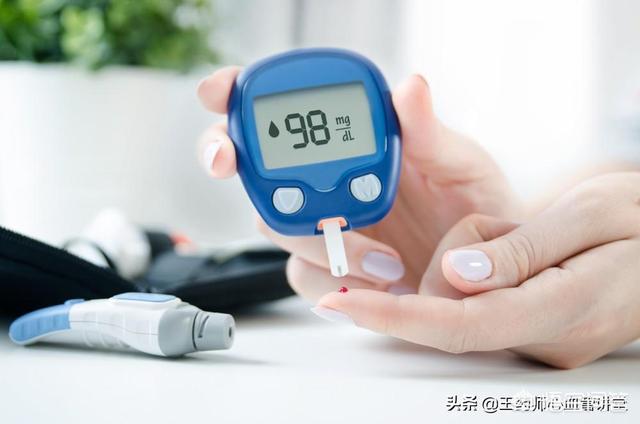
First of all, what exactly are the benefits of vitamins for diabetics?
1, Vitamin C can help control blood sugar.
Once researcher found after years of study that two tablets of vitamin C a day can help lower blood sugar. For diabetics, taking vitamin C resulted in a decrease in postprandial blood sugar spikes, which also meant that the duration of high blood sugar spikes was shortened accordingly. There are some limitations to the study, as the number of participants was limited and varied from patient to patient. However, ensuring that the body's vitamin C requirements are met does have a role to play in preventing diabetes.
2, vitamin C can help prevent complications
It is a fact that diabetes weakens a patient's immunity. In this outbreak of New Crown Pneumonia, diabetic patients are one of the susceptible groups because of their inherent low immunity. This is related to a number of factors such as endocrine disruption due to diabetes, decreased glucose utilization, poor blood quality, and decreased antibody production, so diabetics are more susceptible to infection. And vitamin C is known to be one of the nutrients that can enhance immunity. From this point of view, vitamin C supplementation for diabetic patients is necessary, especially for those who are deficient themselves.
Moreover, studies have found that vitamin C is also effective in fighting bacterial infections and has been shown to promote wound healing when taken orally or applied to any wound. This is also helpful for diabetics who have difficulty in healing wounds and have a high incidence of infections. In addition, vitamin C has free radical scavenging and antioxidant properties, both of which are beneficial in preventing complications.

Secondly, how should diabetics take vitamin C supplements?
The basic rule of vitamin supplementation, for anyone, is to take dietary supplements when you can, and if dietary supplements don't meet your needs, take them through additional dietary supplements.
Foods rich in vitamin C:Mainly found in vegetables and fruits, such as fresh dates, sea buckthorn, kiwi, grapefruit, green peppers, cinnamon, tomatoes, strawberries, kale, cucumber, mandarin oranges, cauliflower, etc. Dietary guidelines call for a daily intake of 300-500g of vegetables and 200-400g of fruits, and diabetic patients are to choose low glycemic fruits, such as pomelo, mandarin oranges, tomatoes, and kiwi.
Additional dietary supplements:For diabetic patients, the dietary requirements are more stringent, coupled with long-term medication, dietary supplements may not be able to meet the body's needs, it is recommended to take additional vitamin C tablets for supplementation. The Chinese Nutrition Society suggests that the daily intake of vitamin C for adults is 100mg, and the tolerable maximum intake is 1000mg/day. In fact, taking one tablet a day, together with daily dietary intake, is enough to meet the demand, unless the doctor has special requirements, it is not recommended to take a large amount of vitamin C supplementation.

Finally, what else do diabetics need to supplement?
In addition to vitamin C, diabetic patients need to pay special attention to supplement the B vitamins, especially vitamin B12. For patients taking metformin for a long period of time, it may cause vitamin B12 deficiency, which will bring some bad consequences, so if you find the lack of manifestations, you have to supplement in time.
In addition, vitamins B1, B2, B6, B12, niacin, folic acid, etc. itself for the prevention of diabetic neuropathy, retinopathy, vasculopathy, etc., so usually pay attention to vitamin supplementation is still necessary. Of course, it also includes vitamin A, vitamin D, vitamin E, and trace elements selenium, zinc selenium and so on. In short, although diabetic patients have a lot of dietary taboos, but must not cross the red line on the basis of ensuring that the variety of food types, nutritional balance, which is also the basic dietary principles, but also in order to replenish the nutrients, better prevention of complications.
I am Pharmacist Wang, dedicated to helping you manage your body by explaining complex and difficult disease knowledge in plain words. Your likes are my greatest motivation! Also, if you have a family member with diabetes-related troubles, please pass this article on to them!
The incidence of diabetes has been rising rapidly in our country. What's more, about a quarter of our diabetic friends or those with pre-diabetes don't know they have diabetes. If the situation continues to develop, it will deal a serious blow to our lives, our finances, and even our lives. From this perspective, early detection of diabetes and early access to regular treatment can go a long way in minimizing the suffering it causes us.
It is because of the horror of diabetes that we all do everything we can to control the main our blood sugar levels. In addition to medication, diet, exercise, and even supplements, there are a variety of supplements that can help alleviate diabetes, such as Vitamin C, Vitamin B12, and more. One of the most common things I've heard is that vitamin C supplements can significantly lower fasting blood sugar, so is this true? Let's find out.

What are the symptoms of diabetes?
There are two main types of diabetes, type 1 and type 2. type 1 is rare, affecting only about 5% of people with diabetes. It is characterized by a complete lack of insulin due to an autoimmune attack on the islet-producing beta cells in the pancreas, which triggers high blood glucose levels.People with type 1 diabetes must take insulin to survive. The more common type 2 diabetes is characterized not by a lack of insulin, but by the resistance of the body's cells to the normal action of insulin. But regardless of the type of diabetes, all have similar symptoms.
For our diabetic friends, when we have abnormally high levels of glucose in our blood, our kidneys draw water from our tissues to dilute the glucose so that our body can remove it through our urine. Our kidneys are unable to reabsorb the fluid during the filtration process, which results in theExcessive urination. That's why we should pay attention to whether we go to the restroom more often than usual and whether we stay in the restroom for a longer period of time in our normal life.

On the other hand.烦渴It is usually co-occurring with increased urination. As the body pulls water out of the tissues to thin the blood and remove excess glucose, then theOur urge to drink water has increased and it's unstoppableIn order to stay hydrated, we drink excessive amounts of fluids. In order to stay hydrated, we drink excessive amounts of fluids, and if we don't drink only water, but also certain beverages such as soda, sweetened iced tea, fruit juices, etc., our blood sugar levels will spike.

We canVisualize your body as a car, needs fuel to function. The body's main source of fuel is glucose, which is broken down from carbohydrates, and insulin transfers glucose from the bloodstream to the cells for energy. When we have diabetes, our pancreas does not produce enough insulin and as a result our cells have no energy and we definitely feelLow energy and extreme fatigue.Just because the cells can't get energy, it tells our brain I'm hungry, and then we increase our energy by constantly eating and drinking. At this point, overeating can raise blood sugar levels and further complicate diabetes.

Are vitamin C supplements good for diabetes?
As we all know, diabetes is very scary because if we are not careful, very serious complications can occur, even endangering our lives. Nowadays, medical treatments are aimed at improving and controlling the microvascular and macrovascular complications caused by diabetes. In fact, diabetes is characterized by oxidative stress and inflammation in addition to hyperglycemia. The oxidative stress and inflammatory response that we experience when we have diabetes impairs the ability of pancreatic beta cells to secrete insulin.
And vitamin C, as we often call it, is a powerful antioxidant that fights against bad oxidative stress and plays a very important role in protecting tissues. In addition.Vitamin C is structurally similar to glucose, which can replace it in many chemical reactions in the body, and is therefore also highly beneficial in controlling blood sugar.
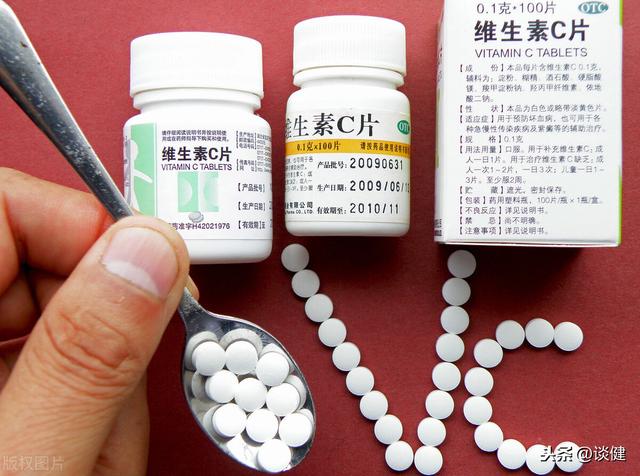
On this point, it has been shown that low levels of vitamin C in the blood of diabetic friends increase the risk of diabetic complications. It is because of such theoretical studies that the vast majority of diabetic friends are keen to supplement with vitamin C. In fact, for theThe beneficial role of vitamin C supplementation in diabetes is widely debated.. An observational study and meta-analysis conducted in an RCT found:
There was a significant positive correlation with improvement in fasting glucose, postprandial glucose, and glycosylated hemoglobin in patients with type 2 diabetes mellitus after concomitant vitamin C supplementation and metformin administration.
So, are we attributing such a marked improvement solely to vitamin C supplementation? This is a clear no. This is because in the study, the type 2 diabetics were also taking the first-line glucose-lowering drug metformin. Therefore, it's hard to say that such a significant improvement is the beneficial effect of vitamin C. Actually, I am.Vitamin C supplements are not recommended for people with diabetes, after all, there is no nail-biting conclusion as to the good or bad of it.

Should diabetics take vitamin C supplements?
Although vitamin C is generally considered safe, high doses can cause adverse reactions such as heartburn, nausea, headaches, stomach cramps and diarrhea. In general.Doses above 2000 mg per day are considered unsafe, which may increase the risk of severe diarrhea and kidney stones. Therefore, if these symptoms occur while taking vitamin C supplements, it is important to go to the hospital immediately.

While vitamin C supplementation may have a beneficial effect on the reduction of fasting blood glucose, it is only possible that higher doses of vitamin C supplementation will show such a benefit. So where is the higher dose limit here? Earlier studies concluded that it was 500mg per day, however going this way did not result in any change. Instead, it was changed to 1000mg per day and ended up with the contradictory result that fasting blood sugar does not show any change. From this point of view.Let's not get too convinced that vitamin C supplementation will give us optimistic results and always keep a sense of perspective.

On the other hand, vitamin C can also raise blood sugar and is something that should be used with caution for those with diabetes, especially the elderly. This is because a sudden increase in vitamin C shows a correlation with the risk of death from heart disease. Therefore, for diabetic friendsVitamin C intake from natural sources or fortified foods recommended, such as cauliflower, brussels sprouts, tomatoes, orange juice, and so on.
In summary, we cannot completely deny that vitamin C supplementation may have a beneficial effect on our diabetic friends, even though this effect may not be fully realized through direct research results. It is because of the ambiguous link between vitamin C supplementation and diabetes that we should hope for formal treatment after diagnosis of diabetes, rather than wasting more effort and hard work on such natural remedies that have no conclusive evidence.
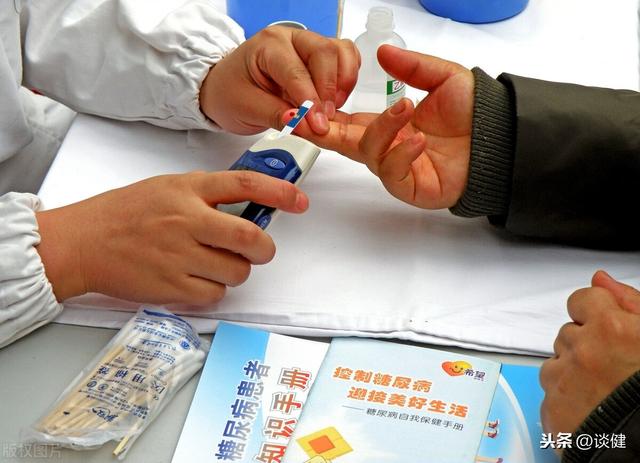
Conclusion:
Having diabetes can be very frustrating, especially since diabetes must be dealt with on a daily basis and is very annoying and painful. However, what we should all understand is that diabetes is manageable and for most people, lifestyle changes such as weight loss, healthy eating, medication and exercise will actually bring blood sugar below the diabetes threshold. Regardless of which way or method we take, we should stick to following our doctor's advice, rather than taking this when we hear others say this is good, and that when that is good, sometimes not only do we not get good results, but we do ourselves harm. And regarding vitamin C supplementation, we are no exception.
Diabetes is considered an epidemic, with a high prevalence and more difficult to cure. At present, the treatment of diabetes still relies on drugs and lifestyle interventions, such as a healthy diet and more exercise. Although diabetes is difficult to cure, but can be prevented, on the one hand, through exercise, weight loss, to avoid obesity, fat consumption; on the other hand, through the "eat" to prevent, such as eating less sugar, oil, salt and so on. Some vitamin substances have a certain effect on the prevention of diabetes, such as vitamin C. The most important thing is to eat less sugar, oil, salt and so on.

What is Vitamin C anyway?
Vitamin C Also known as Vitamin C, it is also called ascorbic acid, why is it called ascorbic acid? Because in the 18th century, scurvy was very common among sailors on ocean voyages, and was also prevalent among army soldiers trapped in prolonged battles, communities suffering from chronic food deprivation, besieged cities, prison inmates, and labor camps. The symptoms of scurvy begin with weakness of the limbs, depression of spirits, irritability, easy fatigue from all work, and easy redness and swelling of the skin. The patient feels pain in the muscles and is depressed. Then his face swells, his gums bleed, his teeth fall out, and he has bad breath. Greenish-purple spots of various sizes and even large bleeding spots appear inexplicably under the skin. Finally, there is severe fatigue, diarrhea, breathing difficulties, broken bones, liver and kidney failure and death.

And the reason for this disease is that their food is pasties, fish and salted meat, which contain only very little vitamin C, theWhen the body is deficient in vitamin C, the microvessels tend to rupture and blood flows to adjacent tissues. When this happens on the surface of the skin, bruises and purple echoes will occur; when it happens in the body, it will cause pain and joint tenderness. In serious cases, there may be bleeding in the stomach, intestines, nose, kidneys and underneath the periosteum, and even death.That's why vitamin C is also called ascorbic acid.
Vitamin C also has the ability to promoteCollagen synthesis, prevention of gum recession and bleeding, prevention of atherosclerosis, antioxidant, treatment of anemia and many other benefits to the human body.Vitamin C also hasThe role of boosting the body's immune system can be beneficial.

Vitamin C and Diabetes
It has been found that people with impaired glucose tolerance and diabetes have varying degrees of oxidative stress, and that vitamin C is a part of the natural
Natural antioxidants, which can directly or indirectly exert antioxidant effects in the body, play an important role in improving the antioxidant level in the body and the prevention and treatment of diabetes.In conclusion, vitamin C has a beneficial effect on diabetes and can be used in the early stages of diabetes and in the treatment of later complications.

So do diabetics need to take a lot of vitamin C?
Never! Vitamin C is only a supplement for diabetics and cannot be used alone to treat diabetes. But diabetic patients can take a certain amount of vitamin C every day to assist in the treatment and prevention of diabetes, this amount of specific how much, there is no definitive. Even for healthy people, there is no standardized dosage of vitamin C in each country, and the following dosage is for reference only (for healthy patients).
National Institute of Nutrition, Hyderabad, India: 40 mg per day;
UK Food Standards Agency: 40 mg daily.
United Nations World Health Organization: 45 mg per day/300 mg per week;
European Commission Nutrition Labeling Committee: 80 mg per day;
Health Canada (2007): 90 mg/day (men) and 75 mg/day (women);
National Academy of Sciences: 90 milligrams per day (men) and 75 milligrams per day (women);
National Academy of Sciences: 60-95 mg daily;
National Institutes of Health, Japan: 100 milligrams per day;
EFSA: 110 mg/day (men) and 95 mg/day (women))

Side effects of overdosing on vitamin C
Vitamin C is a water-soluble vitamin. Excessive intake from the diet is not absorbed and excess vitamin C in the bloodstream is rapidly excreted in the urine, so its acute toxicity manifestations are very low. It may cause indigestion when taken in excess of 2,000 mg - 3,000 mg, especially when taken on an empty stomach. Other symptoms that may result from high doses include nausea, abdominal cramps and diarrhea. High doses of vitamin C intake may lead to over absorption of iron. Vitamin C has also been suggested to increase the risk of kidney stones.
To summarize: Vitamin C should be taken in moderation, and it is healthier to consume it from vegetables, so diabetics can consume more vitamin C-containing vegetables, such as broccoli, broccoli, cabbage, and kale.

Some studies have shown thatVitamin C is indeed good for diabetes, but only for type II diabetes.
There are three main forms of diabetes: Type I, Type II and gestational diabetes.
The cause of type I diabetes is unknown and patients require daily insulin injections to survive.
Type II diabetes accounts for the vast majority of people with diabetes globally and is primarily the result of being overweight and physically inactiveOnce only found in adults, type II diabetes is now increasingly seen in children and adolescents.
Gestational diabetes is a temporary condition that occurs during pregnancy but carries a long-term risk of causing type II diabetes.
What are the benefits of vitamin C for diabetes?
Vitamin C is beneficial forPreventing the onset of diabetes;
Vitamin C canAids in the treatment of diabetes and reduces the risk of diabetic complications.
What amount of vitamin C does it take to make a difference?
To prevent diabetes, a daily intake of 200 mg of vitamin C is appropriate.In the recommended nutrient intake of Chinese residents, the intake of vitamin C for the prevention of non-communicable chronic diseases (PI) is 200 mg/d. However, at present, the daily diet of the vast majority of people in China does not reach this intake.
In another study, it was shown thatDiabetics need to consume more vitamin C to achieve improved blood sugar.This is because glucose is structurally similar to vitamin C and there is some competition for absorption and utilization, so people with high blood glucose levels absorb and utilize vitamin C at a lower rate than normal, and accordingly require a higher intake.
Our Nutrient Reference Intakes (DRIs) have a tolerable maximum amount of vitamin C for adults of 2,000mg, so1000 mg/d of vitamin C intake is a more effective and safer amount.
Affirms the benefits of vitamin C for diabetes, but also builds on proper dietary habits, as recommended by the Chinese Nutrition Society's Dietary Guidelines for Diabetes in China 2017:
1. Eat and move in a balanced manner, use medication wisely, control blood sugar, and achieve and maintain a healthy weight;
2. Staple food is quantitative, with a combination of coarse and fine food, and whole grains and mixed legumes account for 1/3 of the total;
3. Eat more vegetables and fruits in moderation and in a variety of types and colors;
4. Eat fish and poultry, eggs and livestock in moderation, and limit processed meats;
5. Milk and beans are available every day, and snacks and meals are chosen wisely;
6. Eat a light diet, drink adequate amounts of water and limit alcohol consumption;
7. Timing and quantity, chewing and swallowing slowly; paying attention to the order of meals;
8. Focus on self-management and receive regular individualized nutritional guidance.
The health benefits of diabetes can be achieved by consuming more vitamin C and thereby improving dietary habits, I hope my answer is helpful to you!
(Nutrition Pirates: Kohana)
The number of people with diabetes is increasing along with people's age, improving living standards and changing lifestyles.
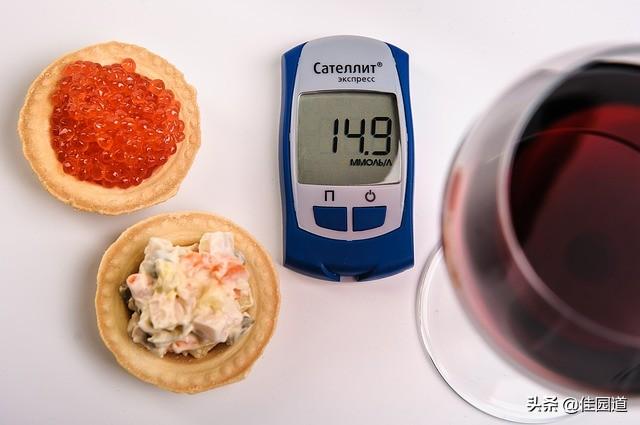
Diabetic patients can have excessive drinking, eating, urinating and weight loss (three more and one less symptoms), itchy skin, blurred vision, and when complications occur, they can have skin infections, breakouts, body odor, foot odor, abnormal sensation with pain in the limbs, or even pain allergy (pain with slight touching or stimulation of the skin), muscle atrophy, and diabetic foot (dryness of the skin of the foot, infections, or even breakouts, necrosis occurs). The foot can be used for a variety of purposes, including
To alleviate the symptoms of diabetes and delay the condition of diabetes as well as delay the arrival of complications mainly rely on the five horse-drawn carriage, the so-called five horse-drawn carriage is mainly to recognize and understand diabetes, long-term adherence to dietary therapy to control blood sugar, long-term active adherence to physical exercise after meals(Aerobic exercise is the main), self regular use of portable blood glucose meter to monitor blood glucose and understand the total control of blood glucose is good or not as well as regular each to the elderly comprehensive follow-up to understand whether there are chronic complications, blood glucose can not be controlled through diet and exercise can be used according to their own condition of patients with hypoglycemic drugs or insulin to control blood glucose.
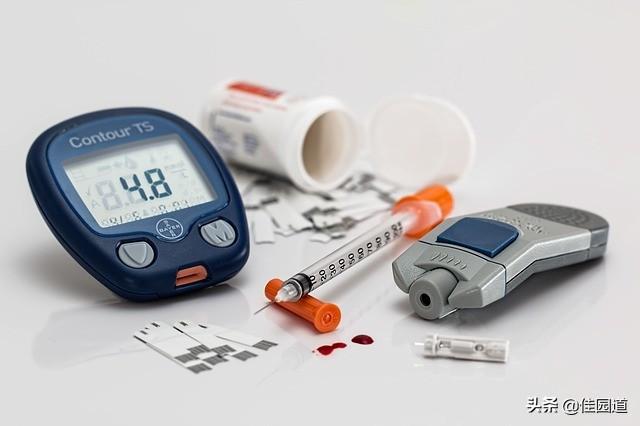
Diabetes diet therapy advocates eating foods rich in soluble dietary fiber, these foods include coarse rice, coarse grains, soybeans and other legumes, fresh green vegetables and low-sugar fruits, sweet potatoes and other tubers, these foods are rich in dietary fiber and vitamins, not only to replenish the body's need for vitamins, increase the volume of stools to promote peristalsis, promote defecation and prevention of constipation, but also lead to slower food absorption The food can also lead to slower absorption of food, can reduce the peak of blood glucose after three meals come early, can improve the imbalance of glucose-fat metabolism disorders, thus improving the condition of diabetic patients.

For diabetic patients, as long as the proportion of diet is reasonable, not partiality and picky eating, eat more fresh green leafy vegetables and low-sugar fruits, generally will not be deficient in vitamin C. Therefore, diabetic patients should not intentionally supplement the medicinal vitamins, unless it is obvious that the lack of vitamin C. Excessive intake of vitamin C, because of vitamin C's reductive properties, will interfere with the monitoring of blood glucose, and will cover up and delay the patient's condition, if the Diabetic patients with comorbid skin complications, diabetic foot, oral ulcers, direct vitamin C supplementation is not recommended, and is usually supplemented through dietary supplements, i.e., eating fresh vegetables and low-sugar fruits.
Diabetics can take vitamin C tablets for the main purpose of controlling blood sugar, specifically:
1, there is no special lack of vitamin C: the need for a normal diet, usually eat fruits and vegetables can meet the normal daily needs of the amount of vitamin C, such as vegetables tomatoes, cucumbers, etc., eating vitamin C alone to reduce blood sugar has no special role;
2, the need to supplement vitamin C: to take the dose of supplement, eat fruit with more sugar inside, easy to lead to elevated blood glucose, so we must control the amount of fruit to eat, to regularly monitor blood glucose, can not be supplemented with vitamin C too much fruit, resulting in elevated blood glucose.
Thank you for the invitation, about sugar control and lowering sugar can click on the avatar to follow me: sugar happy family, pull you into the sugar family, we can eat and drink sugar control, rebuild blood sugar balance, I hope to help you.
There is data from studies that show that vitamin C does have some benefits for diabetes, but this is only for type II diabetes.
Type I diabetes has an unknown cause and requires daily insulin injections to maintain its survival.
Type 2 diabetes accounts for the vast majority of diabetes cases worldwide, and is primarily the result of overweight and physical inactivity. Type 2 diabetes used to occur only in adults, but is now increasingly seen in children and adolescents.
Gestational diabetes is a temporary condition that occurs during pregnancy, but carries a long-term risk of causing type II diabetes.
Vitamin C can assist in the treatment of diabetes, thereby reducing the risk of diabetic complications. 200 mg of vitamin C per day can be obtained entirely through food. Vitamin C obtained directly from food is far more effective than that obtained through vitamin C supplements. For example, if the 200 mg of vitamin C could be obtained from kiwifruit, you would need to eat about 200-330 g of kiwifruit, which is about 2-3 medium-sized kiwifruit.
Aside from fruits, vegetables are actually a source of vitamin C as well. The more common persimmon peppers, kale, rape shoots, bitter melon as well as broccoli are.
And if you are already in the pre-diabetes stage, or have a family history of diabetes, then you may want to start by increasing your intake of vitamin C, and gradually adjusting your diet and lifestyle habits to keep yourself away from the disease and stay healthy for a long time.
Although vitamin C is helpful in the prevention and improvement of diabetes, you must not forget that the fundamental measures still need their own nutritionally balanced diet, regular exercise, adequate rest and relaxation. If you really think that with vitamin C you can continue poor eating habits, continue to be sedentary, continue to stay up late and sleep late, then this is the opposite of the goal of health.
Once researcher found after years of study that two tablets of vitamin C a day can help lower blood sugar. For diabetics, taking vitamin C resulted in a decrease in postprandial blood sugar spikes, which also meant that the duration of high blood sugar spikes was shortened accordingly. There are some limitations to the study, as the number of participants was limited and varied from patient to patient. However, ensuring that the body's vitamin C requirements are met does have a role to play in preventing diabetes.
But.Vitamin C should be taken in moderation, and it is healthier to get it from vegetables, so diabetics can consume more vitamin C-containing vegetables such as broccoli, broccoli, cabbage, and kale.
“Having diabetes is a long marathon". The incidence of diabetes has continued to increase in recent years, especially now that the pace of life for most people is getting faster and faster.Dietary irregularities in many places like some high-sugar diets, overeating and other ways can make you vulnerable to the risk of developing diabetes.. Especially when we develop diabetes, our ownBlood sugar goes up, and it's very damaging to our islet cells., however this is just scratching the surface, if diabetes is not controlled properly then it can increase things likeCardiovascular disease, risk of microangiopathy, dementia and other diseases.

And diabetes itself is ametabolic diseaseThe main reason for this is because of their ownCaused by abnormal insulin secretionIn the early stage of diabetes, timely treatment can basically be cured, if the gradual development of the middle and late stage, basically can only rely on drugs to maintain, and there is a chance of increasing the occurrence of some complications. In clinical work, we have also encountered patients who have also asked this question.Can diabetics consume Vitamin C to relieve their symptoms? Diabetics are still advised to use Vitamin C with caution!Today I'm here to talk to you about the science.

Diabetics themselves need medication to control their condition, so can consuming Vitamin C provide relief?
In the past we used to think that taking Vitamin C in diabetics would help with adjuvant therapy, due to the fact that diabetics often have low levels of Vitamin C in their blood. For this reason an experiment was done to getDiabetic patients took 8 tablets of Vitamin C the day before, on the 2nd day of urine sugar test was originally two plus signs, but became a plus sign, and some even showed negative, after this situation, immediately stopped using Vitamin C, and then a few days after the test, the results returned to the original level.What's the reason for this? Well, first of all, weThe self-defense of the antioxidant system is very complex, and Vitamin C itself has strong reducing properties, can be chemically reacted with the reagent tubes of blood glucose and urinary glucose tests, causing a decrease in the activity of the enzymes in the reagents, which ultimately leads to low test results or even false-positive results.Therefore diabetics who take Vitamin C and then get tested will have results that mask their condition and will only delay treatment.

summarize: For diabetic patients, only accurate laboratory results can know the changes in their condition and make the right treatment plan. At the same time, diabetic patients are usually accompanied by other diseases or different degrees of cardiovascular disease, and Vitamin C itself is one of the commonly used drugs for diabetics.
It is therefore recommended thatIn order not to affect the treatment of diabetic patients in the laboratory about 2 to 3 days before the test to stop the regular dose of vitamin C, so as not to cause an impact on the results, in addition to some of the vitamin C-rich vegetables and fruits, try to be eaten as little as possible, which is why diabetic patients should be careful to use vitamin C reasons.
What are the most indispensable vitamins for the treatment of diabetics themselves?
We all know that in diabetes, we need to eat more vegetables and fruits, and sugar-containing foods are prohibited, so it is very helpful to take vitamins at this time. The same goes forThere are many types of vitamins,So which ones are all applicable to diabetics?Generally diabetics have to target a number ofIntake of beta carotene, B vitamins and vitamins C and E.

1. Beta carotene corresponds to patients with diabetes mellitus with eye lesions
Beta carotene is a popular choice for diabetics because there is also an abundance of its ownGlucose-lowering substances have many benefits for diabeticsIn addition, beta carotene enters our body and passes through the liver and small intestine. In addition, beta carotene enters our body and passes through the liver and small intestine where it is partially activated by enzymes to produceVitamin A, with liver tonic and brightening effect.Therefore, patients who themselves suffer from diabetic eye disease can take a supplement.
For patients with diabetes with eye lesions may be appropriate to take thebeta caroteneVegetables to adjust, in addition to patients suffering from cataracts, glaucoma and other diseases can choose to match theHigh-quality protein, vitamin A, vitamin B1 and B12 are also very helpful in managing the condition.
Foods that contain carotenoids are:Vegetables such as carrots, sweet potatoes, corn, broccoli and tomatoes.

2. Vitamins C and E are mainly used in patients with diabetic complications.
vitamin CBy itself, it is capable of scavenging free radicals that are harmful to you as well as preventing diabetes combined with neurological and vascular lesions. It can alsoLowering of lipid substances in blood, total cholesterol, triacylglyceroletc. can have a good reduction effect and can beRaising HDL cholesterol can alleviate microproteinuria as well as early diabetic retinopathy.The intake of Vitamin C by diabetics should still follow the principles mentioned above and will not be elaborated too much here.

vitamin E: Once the results of a study in the United States and Finland showed that weLack of vitamin E in the human body is prone to diabetes, especially in men with low vitamin E levelsThe chances of having diabetes are about four times higher than normal. Vitamin E and beta carotene have a complementary effect on each other, and it is recommended that diabetics consume about 150mg of vitamin E per day, and that they consume about 1,000mg of vitamin E per day.Diabetes complicating cardiovascular disease is very helpful.
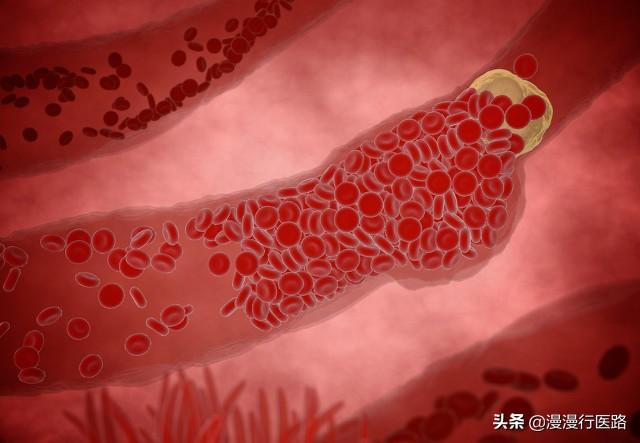
If the diabetes is not properly controlled and the disease progresses further, then theComplications can easily occur. The main focus is on vascular lesions, includingCardiovascular atherosclerosis, diabetic nephropathy, retinopathy, etc... Proper supplementation with vitamins C and E canIncreases collagen content of blood vessels, which is very helpful in preventing atherosclerosis. And diabetes is prone to infections, vitamins C and E can enhance our own physical fitness, thus reducing the chance of infection.
Foods that contain vitamin C include: Vegetables and fruits such as strawberries, apples and spinach.
Foods containing vitamin E:Spinach, almond children, squash, celery, soybeans, mango and other fruits and vegetables.
4. B vitamins correspond to simple diabetes mellitus

There are many types of B vitamins that are primarily involved in our ownMetabolism and redoxProcess. But for the ones that help with diabetes, then the main focus is on theVitamin B7That's the main thing.This is because vitamin B7 helps diabetics control their blood sugar levels and prevents damage to the nervous system caused by diabetes.Also likeVitamins B1, B2, B6, etc. The B vitamins are the main components of the coenzymes of our own glucose metabolism, and are useful in assisting in the treatment of polyneuritisThere is good help.

Type 2 diabetes, which is represented by simple diabetes, is predominantly characterized by the development of insulin resistance.Because after the development of insulin resistanceWe ourselves will wrongly think that "Inadequate blood sugar supply"This is the time when we ourselves use our entire body to break down fats and proteins to synthesize blood sugar, consuming large amounts of B vitamins in the process, so people with simple diabetes should take appropriate B vitamin supplements.
Foods containing B vitamins: Foods such as tenderloin, peanuts, black rice, milk, nuts, eggs wheat.
Summarize: the above 4 kinds of vitamins are beneficial to diabetic patients themselves, as to how to ingest how to apply, or according to their own situation to choose. In addition, the condition of diabetic patients is also more complex, there are simple as well as acute or chronic complications, this time it is necessary to supplement according to their own situation.
What can you do to prevent this in your life with diabetes?
People with diabetes need to pay extra attention to all aspects of their lives, and if they don't have good control over one aspect of their lives, it can cause their blood sugar to rise, which may lead to a series of complications. AndDrugs only account for about 30% or so of diabetes in terms of treatment, while most of the remaining 70% is through lifestyle, to intervene. The main areas are as follows:

1. Daily diet
People with diabetes stand to gain a lot of importance in their diet, and their daily diet should beDiet low in salt, fat and sugar as well as high quality proteinThe most important thing to remember is that you should not eat too much at each meal, usually around 7 minutes. On the issue of high quality protein intake or according to their own situation, especially their own kidney function, good kidney function patients can take more high quality protein, life in a variety of food containing high quality protein in many kinds, for diabetic patients, or to theHigh quality animal protein based, but in moderation so as not to aggravate the burden on the kidneys.
2. Proper exercise

Regular exercise workouts for people with diabetes are also important for controlling the condition, this is becauseProper exercise can promote our own blood circulation and metabolism, and at the same time have a good effect on the cardiorespiratory function of promotion, also has great benefits for controlling both blood sugar and vascular lesions.
Exercise recommendations for diabetics are still based onaerobicspredominantly, sports workouts are still in30 minutes.Around the best, likeJogging, brisk walking, swimmingAnd other ways are possible, but pay attention to the right amount of not too much exertion.
3. Regular work and rest

Regular routine also helps a lot in controlling the condition of diabetics. Be sure toAvoid staying up lateIn addition, getting enough sleep to develop a regular biological clock can alleviate the damage that complications can do to your body. There is an old saying."Any disease is three parts cure, seven parts nourishment."Then it's the same thing for diabetes.
Summarize: diabetes for us is a long battle, but also a test of our own will moment, for the prevention and treatment of diabetes is a comprehensive, should be from diet, rest, exercise, three aspects to start. In addition, how to take vitamins for diabetes, or according to their own situation to choose the right for themselves, this is the right way, do not blindly choose.
I'm a rambling medical practitioner focusing on medical science, so if you like it, help like and retweet it.


Type 2 diabetes is a chronic metabolic disorder characterized by hyperglycemia and vascular complications. According to statistics, the prevalence of diabetes among adults in China in 2020 was 12.8%, and the total number of people with diabetes was estimated at 129.8 million, with the prevalence of type 2 diabetes increasing year by year. Diabetic patients have increased levels of oxygen and nitrogen free radicals in their bodies due to metabolic disorders, and these oxidative free radicals cause a series of oxidative stress reactions, leading to vascular endothelial cell dysfunction and endothelial cell damage, resulting in a series of diabetic complications, and vitamin C, as an antioxidant, is able to neutralize free radicals in the blood.But there is controversy about whether vitamin C can improve symptoms in diabetics, so it needs to be clarified whether vitamin C intake is beneficial for diabetics.
What is oxidative stress? How does it relate to the complications of diabetes?

Diabetic patients in a long-term hyperglycemic state, the body through the action of various mechanisms of oxidative free radicals produced by the content of more than their body's capacity of free radicals, a large number of oxidized free radicals in the patient's body accumulation, thereby causing tissue damage, which is oxidative stress.
Oxidative stress affects diabetic patients in the following ways:
(i) Contribute to the development of insulin resistance in the body
It has been shown that oxidative stress activates multiple stress-sensitive signaling pathways in pancreatic islet cells, which are closely associated with insulin resistance and impaired β-cell function.
② Damage to pancreatic β-cells, affecting insulin secretion
Pancreatic β-cells are also an important site where oxidative stress occurs, and studies have shown that oxidative stress can indirectly inhibit β-cell function by affecting the insulin signaling pathway, resulting in damage to pancreatic β-cells, which then directly leads to reduced levels of insulin secretion.
③ Damage to vascular endothelial cells, leading to atherosclerosis
Oxidative stress damages vascular endothelial cells and stimulates endothelial cells to secrete a variety of inflammatory factors, which induces monocytes to adhere and migrate into the arterial intima, and promotes the uptake of lipoproteins by vascular endothelial cells to form foam cells, which ultimately leads to the formation of atherosclerosis.
Vitamin C supplementation does not improve symptoms in diabetics

Vitamin C, as an antioxidant, is theorized to reduce oxidative stress in diabetic patients by acting as an antioxidant in the body and promoting the body's scavenging of oxidative free radicals.
However, according to the results of clinical studies, diabetic patients supplemental intake of vitamin C does not get the corresponding therapeutic effect, but may be due to excessive intake of vitamin C and lead to a series of adverse effectsFor example, excessive intake of vitamin C can make diabetic patients produce too many catecholamines in the body, leading to aggravation of the disease; some studies have also shown that diabetic patients who take a lot of vitamin C will increase the risk of cardiovascular disease, and lead to the occurrence of the body of iron overload and iron metabolism disorders, which are all the negative effects of vitamin C.
Summary:The role of vitamin C in diabetic complications has been controversial, and the results of existing studies do not prove that vitamin C has the effect of improving the function of vascular endothelial cells, and excessive intake can lead to a series of adverse effects, so diabetic patients are advised to consume with caution.
This question and answer are from the site users, does not represent the position of the site, such as infringement, please contact the administrator to delete.
